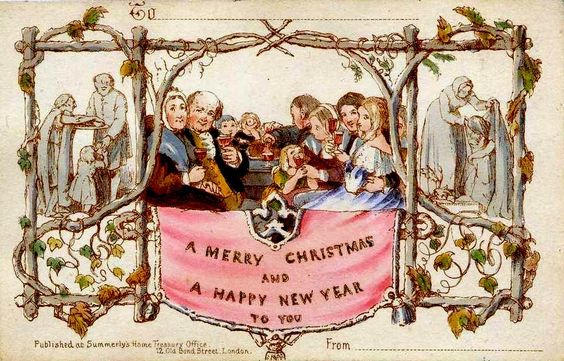8. Reach Out to Help Those in Need
This is the eighth article in the series ‘10 Things to Do with Your Family This Christmas Season.’
Mrs. Jellyby, Mr. Skimpole, Mr. Jarndyce, Esther Summerson; if you’re familiar with Charles’ Dicken’s work you’ll recognize these characters and their incredibly fun literary names. But why did Dicken’s really write his book, Bleak House?
Before the advent of state-run welfare systems the work of caring for the destitute was ably done by individuals and voluntary associations. Back then, as well as today, the theory was heavily laden with controversy. Palliative measures were often seen as enabling a vicious cycle. In other words, if a person was able but not willing to work, then offering him food and funds to support his family without requiring him to work was only contributing to the poverty cycle. Knowing whether a person was truly destitute because of circumstances outside their control was impossible to tell unless you knew them personally and were acquainted with the details of their life.
Charles Dicken’s Bleak House is a fascinating, several-hundred-thousand-word commentary on voluntary charity. Sadly in America today, this is a concept most are not even aware of. In Isaiah 58 we read,
“And if you give yourself to the hungry And satisfy the desire of the afflicted, Then your light will rise in darkness and your gloom will become like midday.”
Christians today sometimes find it difficult to help those in reduced circumstances because of the facade of state welfare, but this is no excuse to ignore the needy. It may be ten times more difficult to truly acquaint yourself with those in need — physically and economically, spiritually and emotionally, who would truly benefit from resources at your disposal — but it is not impossible!
This Christmas season, I plead with you to consider whether you know anyone in need, a fellow Christian under persecution who needs your encouragement, a brother who has encountered desperate economic times, a hurting family, and reach out to them.
“Truly I tell you, whatever you did for one of the least of these brothers of Mine, you did for Me.”
The Christmas season is often the most difficult for those in need. In Victorian times, Christmas was associated more closely with charity than anything else. Charles Dickens did not invent the concept in his Christmas Carol; he commented on it, beautifully! The first Christmas card in 1843 had three panels. The outer two panels showed people caring for the poor and in the center panel was a family having a large Christmas dinner.

This year, remember Jesus’ commands to consider those in need and give freely of what He has given you! Remember those sick in the hospital during this Christmas season, those who have lost loved ones, those alone in nursing homes, those who have lost their homes or jobs, those struggling financially, and be a cheerful giver whether anonymously or in person! If you need practical ideas, start by thinking of something kind someone did for you when you were in need and pass the kindness on to another person. I promise you, your reward from the Lord is worth it a thousand times over.
“In everything, I showed you that by this kind of hard work we must help the weak, remembering the words of the Lord Jesus Himself: ‘It is more blessed to give than to receive.’” —Acts 20:35

